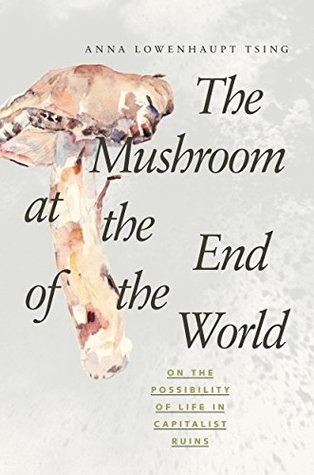More on this book
Community
Kindle Notes & Highlights
Read between
June 19 - June 24, 2020
When Hiroshima was destroyed by an atomic bomb in 1945, it is said, the first living thing to emerge from the blasted landscape was a matsutake mushroom.
Here, attending to living-space entanglements seems inefficient, and perhaps archaic. When its singular asset can no longer be produced, a place can be abandoned. The timber has been cut; the oil has run out; the plantation soil no longer supports crops. The search for assets resumes elsewhere. Thus, simplification for alienation produces ruins, spaces of abandonment for asset production. Global landscapes today are strewn with this kind of ruin.
By 1989, something else had begun in Oregon’s cutover forests: the wild mushroom trade. From the first it was linked to worldwide ruination: The 1986 Chernobyl disaster had contaminated Europe’s mushrooms, and traders had come to the Pacific Northwest for supplies.
Making worlds is not limited to humans. We know that beavers reshape streams as they make dams, canals, and lodges; in fact, all organisms make ecological living places, altering earth, air, and water.
Without the ability to make workable living arrangements, species would die out. In the process, each organism changes everyone’s world. Bacteria made our oxygen atmosphere, and plants help maintain it. Plants live on land because fungi made soil by digesting rocks. As these examples suggest, world-making projects can overlap, allowing room for more than one species. Humans, too, have always been involved in multispecies world making. Fire was a tool for early humans not just to cook but also to burn the landscape, encouraging edible bulbs and grasses that attracted animals for hunting. Humans
...more
This book argues that staying alive—for every species—requires livable collaborations. Collaboration means working across difference, which leads to contamination. Without collaborations, we all die.


